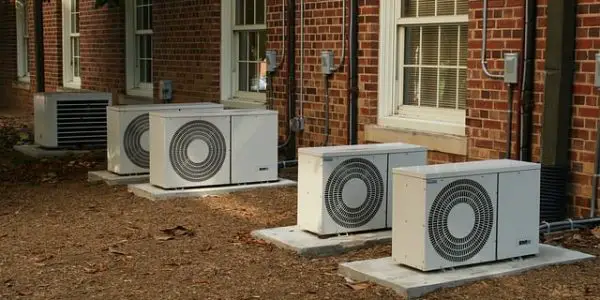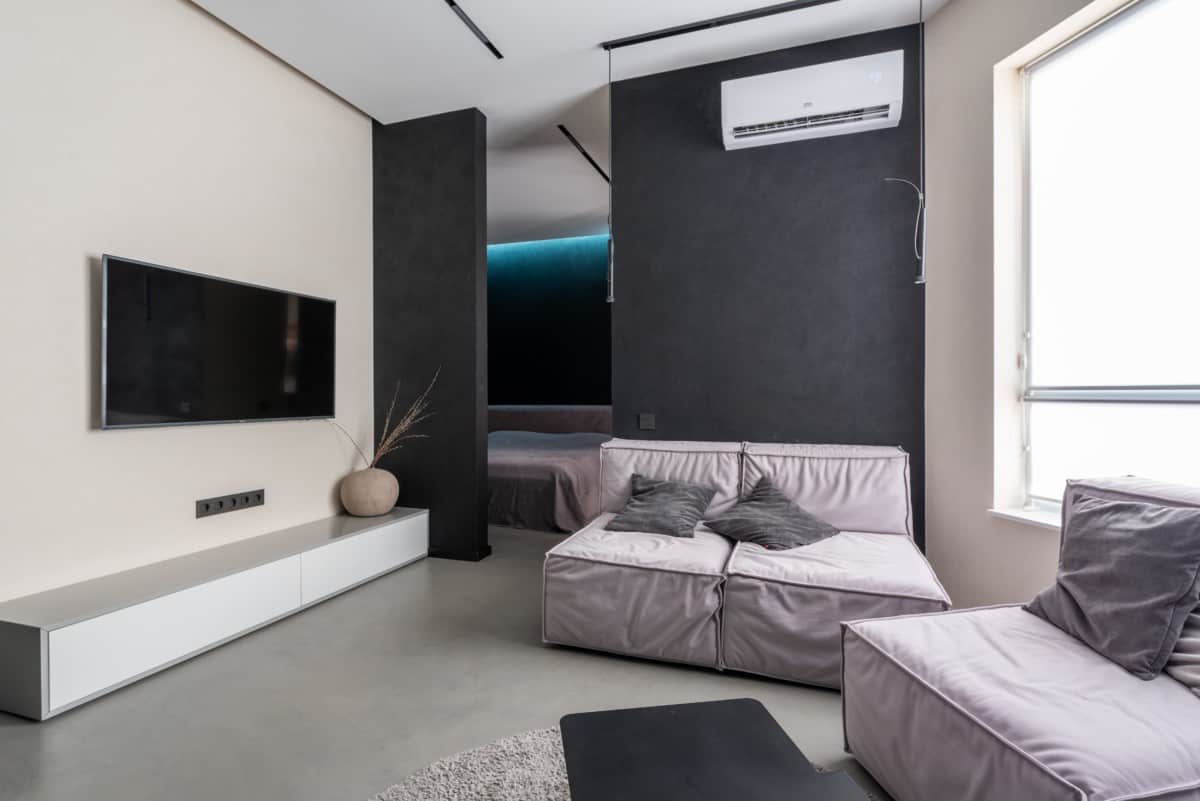Air conditioning is something that was considered a luxury when it was first introduced. Nowadays, nearly every household has AC. Occasionally, malfunctions happen, as with any other household appliance.
One of the most common problems people encounter is the outdoor unit (AC condenser) blowing out cold air, causing the unit to freeze, or the indoor unit not working correctly. There are several reasons why that happens, and, depending on the reason, you can fix the problem yourself. So, how can you fix an AC condenser that’s blowing out cold air?
First, determine what the problem is. It can be dirty filters, lack of refrigerant fluid, malfunction of the compressor, or disconnected wiring. If it’s something simple as dirty filters, you can fix it yourself. If it’s something more complex, it’s better to call a professional to repair it.
There are several different AC system types, so the problem’s solutions vary depending on the system. It’s normal for the outdoor unit to blow colder air to blow warm air inside with heat pumps. However, you should always check both units when it happens because minor malfunctions can lead to more significant problems, costing you a lot more money.

Should The AC Condenser Be Blowing Cold Air?
If your AC is in cooling mode, the condenser shouldn’t be blowing cold air outside. When the AC is in cooling mode, it’s extracting heat and moisture from the air in your room, recirculating that air, cooling it, and blowing it back into the room.
However, the extracted heat has to go somewhere, which is where the condenser steps in. Normally, it should blow the warmth outside. If it’s blowing cold air, you might have a problem.
Suppose you set the system to “ventilator” mode. In that case, the condenser usually doesn’t even turn on. The unit is merely circulating the air inside the room, neither cooling nor heating it.
If you set it on heat mode, it’s normal to have cooler air coming out of the AC condenser. These systems are usually the heat pumps that pump warm air in and cold air out. That’s why most AC systems can’t heat when the temperatures outside are too cold (-8 degrees Celsius or lower) – it causes the condenser to freeze over.
Let’s get into the possible reasons why your AC condenser might be blowing cold air.
Why Is Your AC Condenser Blowing Cold Air?
Before I get into the possible reasons why your AC condenser is blowing cold air, I have to highlight that you should never repair yourself if you don’t know what you’re doing.
The Internet can help you with some guidelines, but you should call a professional for all the complex work. It can be very dangerous to try fixing issues yourself, especially if they require replacing the parts, repairing electronics, etc.
The most common issue you might have with your condenser is insufficient airflow. It usually happens when your AC has dirty filters. If the filters are clogged, the air cannot flow over the evaporator coil properly, causing several malfunctions. That causes the coil temperature to drop and start freezing, which leads to the condenser blowing cold air.
The second issue you might have to cause this is your AC being low on refrigerant fluid. That can happen over time when using the AC frequently, but usually, there has to be a leak somewhere for it to happen.
One more common problem is disconnected wiring or the wires being connected the wrong way. If you cleaned your filters, refilled the refrigerant, and the issue is still happening, check the wiring to see if everything is in order. It’s best not to touch anything without a professional, but if you know electronics, check it out yourself.
You might have a broken thermostat on your hands, which can cause many different issues, especially if your AC usually runs on auto mode. It can cause mix-ups between cooling and heating, switching on and off randomly, etc.
Also, you may have a problem with the capacitor. You can check this out easily by looking at it when you open up the unit. If there’s a problem, the capacitor will likely be bubbled at the top.
If none of the possible reasons mentioned above end up being your particular issue, then the unit’s compressor might be malfunctioning. It is a prevalent issue that usually requires the replacement of the compressor.
How To Fix Your AC Condenser If It Is Blowing Cold Air?
Many possible reasons for the AC condenser to blow cold air mean there are many possible solutions, depending on your problems. I’ll start from the most simple solutions you can do yourself and build up to the ones that require professional help.
First, check the filters. As the unit circulates the air in your room, dust particles slowly clog up the filters. Clean them thoroughly to improve airflow. Good airflow can prevent many problems, including the capacitor going bad and preventing the coils from freezing.
Next, check the thermostat by setting the desired temperature. Leave the unit working for an hour or two to see if it regulates the temperature as you’ve set it. If not, replace the thermostat. Repeat the process, and if it still doesn’t work correctly, try looking at the wires. It’s not rare to have the cables disconnected, and it’s a pretty easy fix.
When it comes to the lack of refrigerant, you shouldn’t try fixing it on your own. You need to call a professional to refill it and check out why your unit was low on refrigerant in the first place. Usually, there’s a leak somewhere, which can also be easily fixed by tightening the screws and joints.
Finally, suppose there’s a more severe issue, such as the capacitor bubbling up or the compressor malfunctioning. In that case, you should ask a professional how much it would cost to replace all the necessary parts. I’m saying that because sometimes it’s better to replace the entire system instead of buying part after part, especially if the unit is already old.
You have to pay for the parts and the repairman’s labor, and it might be better for you financially to buy a new unit.











